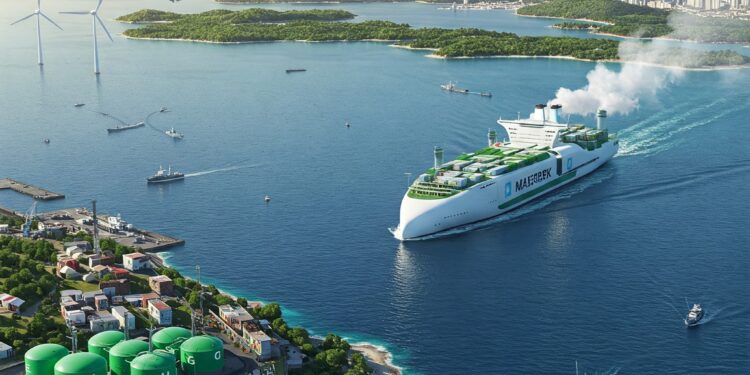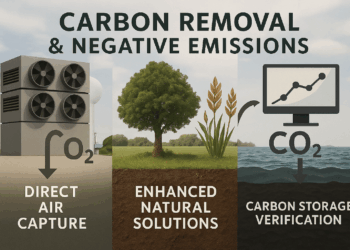In a global economy defined by movement—of goods, people, and data—few industries bear the weight of both economic lifeblood and environmental burden like shipping. Responsible for nearly 3% of global carbon emissions, the maritime sector has long lagged behind in climate innovation. But in 2025, Maersk, the world’s largest shipping company, is charting a new course: one that places climate justice at the helm of global logistics.
Anchoring Ambition: Net-Zero by 2040
Maersk’s goal to reach net-zero shipping emissions by 2040 is one of the most aggressive climate targets in the heavy transport sector. While many industries flirt with 2050 as the magic number, Maersk’s accelerated timeline reflects both the urgency of the climate crisis and the company’s recognition of its unique role—and responsibility—in shaping global trade emissions.
By the end of 2025, Maersk has turned promise into practice, with three major milestones:
1. Methanol-Powered Cargo Ships: A Sea Change in Fuel
In what is being hailed as the largest clean fleet overhaul in maritime history, Maersk has deployed 12 new methanol-fueled cargo ships. These vessels, powered by green methanol derived from renewable sources, are expected to slash over 3 million tons of CO₂ emissions per year—equivalent to taking nearly 650,000 cars off the road.
Methanol is not only cleaner but also more scalable in the short term than hydrogen or ammonia, making it an ideal transitional fuel for deep-sea shipping. More importantly, Maersk’s move has created a market signal: shipbuilders, energy suppliers, and port authorities are now racing to support low-emission infrastructure.
2. No More Fossil-Fuelled Short-Haul Flights: Enter the Electric Drone Fleet
In a dramatic overhaul of its short-haul logistics chain, Maersk has completely eliminated fossil-fueled air freight for regional deliveries. Instead, the company now uses a fleet of electric drones for time-sensitive cargo—reducing last-mile emissions while slashing noise pollution and urban congestion.
This shift is more than just a tech flex. It represents a broader trend of rethinking global-to-local logistics in a way that centers environmental equity. In many regions, the noise, air pollution, and health burdens of fossil logistics fall disproportionately on marginalized communities. Cleaner skies mean cleaner lungs—and Maersk’s transition is a win for both the planet and public health.
3. Port Partnerships for Green Hydrogen Bunkering
Maersk has also taken its climate commitment to the docks. In 2025, it forged partnerships with major international ports to mandate green hydrogen bunkering infrastructure, laying the groundwork for future vessel refueling needs.
This isn’t just an investment in fueling ships—it’s an investment in global energy justice. Green hydrogen production and port electrification, particularly in the Global South, have the potential to catalyze local green economies, creating jobs while reducing dependency on fossil imports. Maersk’s port partnerships are a strategic blend of climate action and development diplomacy.
Why It Matters: Rewriting the Rules of Trade
By revolutionizing how goods move across the globe, Maersk is doing more than reducing emissions—it’s redefining what ethical trade looks like in the 21st century. Historically, shipping has externalized its environmental costs to coastal cities, frontline communities, and fragile ecosystems. Today, Maersk is demonstrating that global commerce doesn’t have to come at the expense of planetary stability or social equity.
And let’s be clear: this isn’t charity—it’s strategy. With tightening global emissions regulations, investor scrutiny, and consumer demand for transparent supply chains, climate-smart logistics is fast becoming a competitive advantage.
The Wake of Innovation
Maersk’s 2025 actions have already begun rippling across the industry. Rival carriers are accelerating their own decarbonization timelines, and freight clients—from fashion retailers to electronics giants—are now favoring carriers with cleaner credentials.
If shipping is the circulatory system of globalization, Maersk is attempting a heart transplant—one that could ensure global trade flows not only efficiently, but ethically and sustainably.
Global Justice in Motion: In embracing green fuel, autonomous logistics, and equitable energy systems, Maersk is proving that the future of trade must also be the future of climate justice.








